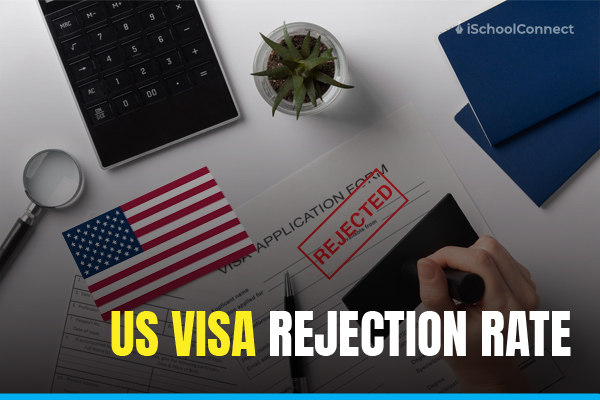Table of Contents
- Who is eligible to collect Social Security benefits outside the US?
- Even if you lack sufficient work credits, you may still be eligible
- You can receive benefits even if you do not live in the United States
- You will have to pay taxes on your Social Security benefits
- Foreign benefits and other sources of income may reduce your SSA benefits
- Non-citizen spouses are eligible for spousal and other benefits
- Key takeaways
- FAQs
Many non-citizens living and working in the United States are unaware they are eligible for Social Security benefits. The average Social Security benefit in June 2018 was $1,413 per month. While many factors influence how much a person receives, these benefits are often critical for many citizens and non-citizens. Keep reading to learn about Social Security benefits for non-US citizens living abroad.
Who is eligible to collect Social Security benefits outside the US?

The rules for collecting Social Security benefits outside the United States vary depending on whether you are a U.S. citizen or a non-US citizen. Here are some fundamentals.
If you are a US citizen
If you spend more than 30 consecutive days outside the 50 states, the District of Columbia, Puerto Rico, the U.S. Virgin Islands, Guam, the Northern Mariana Islands, or American Samoa, the Social Security Administration (SSA) will consider you to be outside of the country.
If you are a US citizen, you can collect retirement, disability, or survivor benefits while abroad as long as you meet the usual eligibility requirements.
If you are a non-US citizen
Non-US citizens may be subject to different rules depending on their citizenship, where they live, and the type of Social Security benefits they claim.
The ‘totalization agreement’ determines the rules between the United States and more than 25 other countries. A totalization agreement serves two primary functions. The first is to avoid double taxation so that the ex-pat does not contribute to two different insurance systems.
If you receive dependent or survivor benefits, you may be required to meet additional residency requirements, as detailed in the Social Security booklet, ‘Your Payments While You Are Outside the United States.’
In some cases, Social Security will stop paying benefits to recipients who leave the country for six months or more but will resume them if the person returns for at least one month.
Even if you lack sufficient work credits, you may still be eligible
Even if you do not intend to stay in the United States for ten years and accumulate 40 work credits, you may be eligible for benefits. The United States has bilateral agreements with 20 countries until this date. The goal is to make it easier for people working in other countries to qualify for benefits so that you can combine your work credits earned in the United States with those achieved in one of the other 20 countries.
You can receive benefits even if you do not live in the United States
Except for North Korea, Cuba, and a few other countries where the US Treasury has imposed payment restrictions, you can live and collect your payments wherever you want. To continue receiving benefits, non-citizens must live in the United States for one full calendar month every six months.
However, there may be exceptions to this rule depending on where you live. For example, if you are a Chinese citizen living in China, you can still receive benefits if you have at least 40 credits or have lived in the United States for at least ten years.
The Social Security Administration’s Payments Abroad Screening Tool can assist you in determining whether you are eligible to receive benefits outside of the United States.
You will have to pay taxes on your Social Security benefits

Whether you work or receive benefits, the IRS will always want a cut of your income. There are numerous deductions and exemptions, as with everything else, but resident aliens in the United States typically see a 25.5% reduction in their benefits. The SSA (Social Security Administration) usually does this through withholding.
The good news is that these taxes are usually refunded when you file your US tax returns. If the tax due is less than the amount withheld, you may be able to recover some or all of the withholding. For those who spend most of their time outside the US, one excellent option is to see if they qualify as a nonresident, which can eliminate the withholding.
Foreign benefits and other sources of income may reduce your SSA benefits
Many non-citizens are also eligible to receive retirement benefits from their home countries, but this may limit the amount of Social Security benefits you can receive. The Windfall Elimination Provision may reduce your benefits to account for outside income. Check out the ‘simple screening tool’ to see if this will affect you or not.
Non-citizen spouses are eligible for spousal and other benefits
Foreign spouses who marry US citizens are generally eligible for benefits. Several factors determine it. If the non-citizen’s home country has an agreement with the US or has lived in the US for at least five years while married, they are eligible regardless of the country where the couple currently resides. Similarly, even if the US citizen spouse dies, the non-citizen should be able to receive benefits.
Key takeaways
- Non-US citizens may be subject to different rules depending on their citizenship, where they live, and the type of Social Security benefits they claim. The totalization agreement determines these rules.
- Except for North Korea, Cuba, and a few other countries where the US Treasury has imposed payment restrictions, you can live and receive payments wherever you want.
- Even if you do not intend to stay in the United States for ten years and accumulate 40 work credits, you may qualify for benefits.
Did you find this blog informative? If so, please share your thoughts in the comments section below. Click here to contact us for more information on social security benefits for non-US citizens living abroad. We would be happy to assist you with your queries.
Liked this blog? Read next: How to obtain permanent residency in New Zealand
FAQs
Q1. Can you receive Medicare benefits if you live outside the US?
Answer- Remember that you can have Medicare while living abroad, but it usually does not cover the care you receive. Most people are eligible for premium-free Part A, which means you will pay nothing for coverage.
Q2 The totalization agreement includes which countries?
Answer- Italy, Germany, Switzerland, and Belgium are some countries in the totalization agreement.
Q3. Can you lose your US citizenship if you live abroad?
Answer- A US citizen may naturalize in another country without jeopardizing his or her US citizenship. Persons who obtain a foreign nationality after 18 by applying for it may, however, renounce their US nationality if they so desire.






